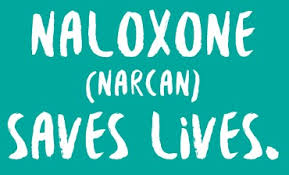OPIOID OVERDOSE DEATHS INCREASED IN ALABAMA IN 2020
State Agencies and Organizations Combine Efforts to Reverse the Crisis
Montgomery, Ala. – The Alabama Opioid Overdose and Addiction Council is raising awareness about the increased number of opioid overdose deaths in 2020. Opioids are drugs such as heroin, fentanyl and prescription medications like hydrocodone and oxycodone. The Centers for Disease Control and Prevention (CDC) issued an official Health Advisory on December 17, 2020, alerting healthcare professionals of a “substantial increase in drug overdose deaths across the United States, primarily driven by rapid increases in overdose deaths involving synthetic opioids, excluding methadone, likely illicitly manufactured fentanyl.” Illicitly manufactured fentanyl is now known to be present in all street drugs, including heroin, cocaine, methamphetamine and counterfeit prescription pills.
According to the CDC, there were 81,230 drug overdose deaths in the United States in the 12 months ending May 2020, the largest number ever recorded for a 12-month period. During that period, drug overdoses increased more than 20% in Alabama, resulting in the state being one of 25 with the highest increase.
The Alabama Department of Public Health (ADPH) supports the collaborative efforts of the Governor’s Alabama Opioid Overdose and Addiction Council to develop effective strategies to reverse the opioid crisis in our state. State Health Officer Dr. Scott Harris said, “The crisis of opioid use and addiction reaches all strata of society in significant ways, and the COVID-19 pandemic has created additional challenges. We encourage the friends and families of people with substance use disorders to educate themselves about the lifesaving use of naloxone and to support their loves ones in seeking and receiving care without judgment or blame.”
The ongoing anti-stigma campaign, Stop Judging, Start Healing, initially focused on the public but is now being extended to provide education to healthcare providers. The ADPH Pharmacy Division is responsible for the Alabama Prescription Drug Monitoring Program (PDMP) which includes maintaining the database of dispensed schedule II through V controlled substances in Alabama. Recent improvements to the PDMP make it easier for prescribers to identify those misusing opioids and to motivate those with an opioid abuse disorder to find help for themselves, their families and communities. The number of prescribers accessing PDMP data increased in 2020, which indicates prescribers are increasingly aware of opioid misuse. The council is committed to responding to this acute need to decrease misuse and overdoses in Alabama and raising awareness of the resources that are available to help those with substance use disorders.
In partnership with the Alabama Department of Public Health and the Alabama Department of Mental Health (ADMH), the Jefferson County Department of Health (JCDH) developed an online training platform for individuals around the state to receive naloxone training and receive a free naloxone kit by mail. Naloxone is a life-saving medication that can reverse an opioid overdose. It is available as an easily administered nasal spray (also known as Narcan®) or injection. The training takes less than 15 minutes.

Individuals may access the training on the JCDH website at www.jcdh.org and search naloxone or Narcan®. Friends and family members of individuals using the substances mentioned above should be educated on the use of naloxone and have naloxone available. If you have questions about receiving a free Narcan® kit through JCDH, please email naloxonetraining@jcdh.org or call 205-930-1065.
“The Alabama Department of Mental Health fully encourages the training and use of Naloxone to decrease overdose deaths of our loved ones. Too many friends and family members are lost to opioid use disorder. We can help them begin the journey of recovery by educating ourselves about Naloxone,” said Commissioner Kim Boswell, ADMH and Co-chair of the Alabama Opioid Overdose and Addiction Council.
“The opioid crisis has caused tremendous suffering for its victims in Alabama, which has intensified with the unprecedented challenges of this past year,” said Attorney General Steve Marshall. “More than ever, it is important that we face this problem effectively, focusing not on shame and stigma, but on prevention, treatment and healing. We need to make people aware of the dangers, because knowledge brings power, and we need to provide tools that will save lives. That is why we want people with vulnerable loved ones to know how to get naloxone and use it in cases of overdose. If you or someone you know is struggling with opioids, please find out what assistance is available and ask for help.”
Help is available for those struggling with substance use through a free 24/7 substance use helpline at 1-844-307-1760. This is a statewide service sponsored by the Alabama Department of Mental Health and staffed by peer recovery support specialists from the Recovery Organization of Support Specialists (ROSS) to help individuals navigate treatment and recovery systems.
###
